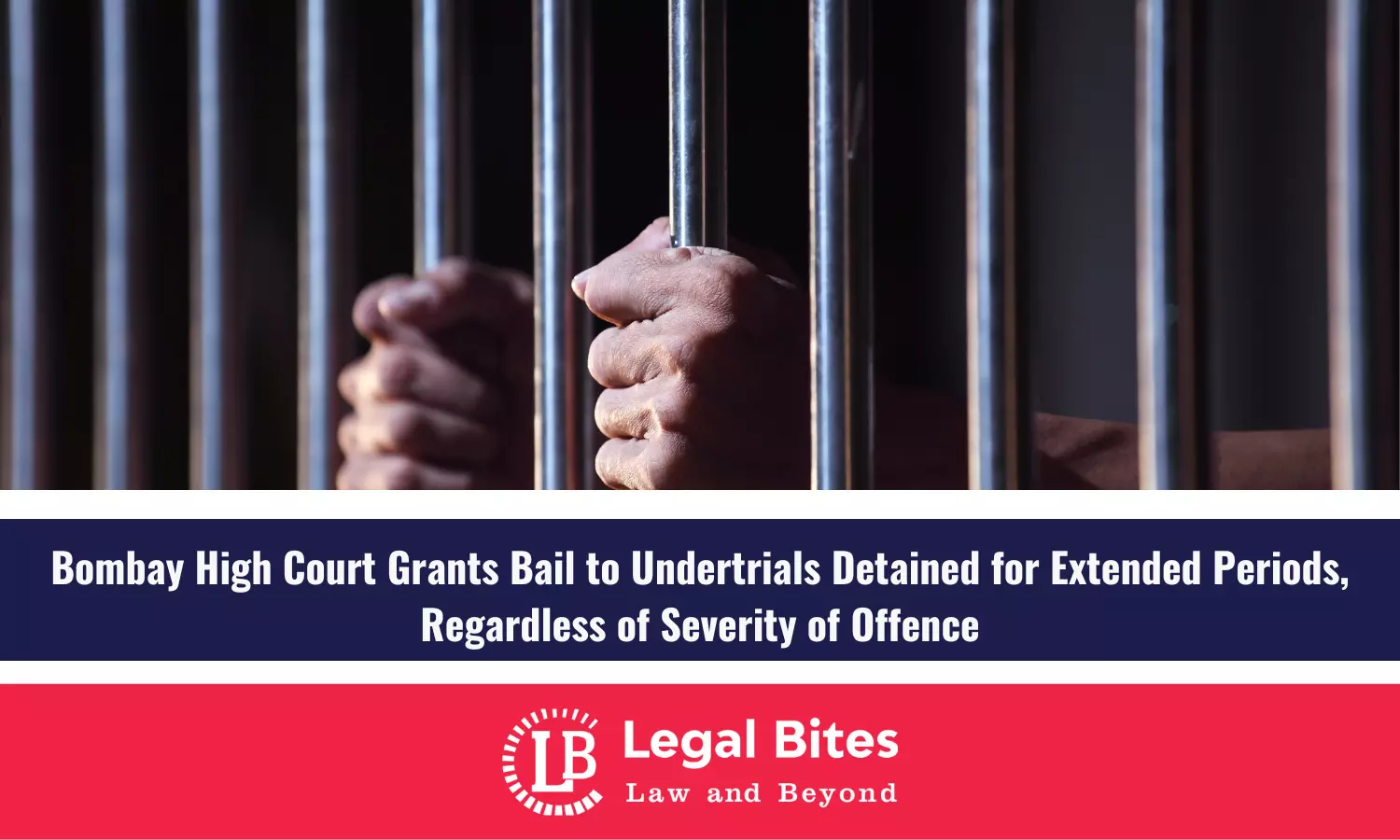Bombay High Court Grants Bail to Undertrials Detained for Extended Periods, Regardless of Severity of Offence
The Bombay High Court, in the matter of Akash Satish Chandalia v. State of Maharashtra, delivered a significant judgement emphasising the rights of undertrial prisoners who have endured prolonged detention.

Bombay High Court Grants Bail to Undertrials Detained for Extended Periods, Regardless of Severity of Offence
The Bombay High Court, in the matter of Akash Satish Chandalia v. State of Maharashtra, delivered a significant judgement emphasising the rights of undertrial prisoners who have endured prolonged detention while facing serious criminal charges. The ruling, authored by Justice Bharati Dangre, addressed the fundamental principle enshrined in Article 21 of the Constitution of India, which safeguards an individual's right to life and personal liberty.
In this specific case, the Court granted bail to Mr. Akash Chandalia, who had been incarcerated for a period of 7.5 years as an undertrial on charges of double murder. Justice Dangre's ruling underscored the crucial legal principle that depriving an individual of their personal liberty without ensuring a speedy trial is fundamentally incongruent with the constitutional protection guaranteed by Article 21.
The Court stated that when the timely conduct of a trial becomes infeasible and an accused person has already undergone a substantial portion of the potential sentence, the court must, as a matter of course, consider releasing the individual on bail. This directive is irrespective of the gravity of the accusations levelled against the accused.
This legal pronouncement arose within the context of a case involving a notorious gangster, Kisan Pardeshi, and several associates, including Mr. Chandalia. The charges against them included kidnapping, assault, and murder of two individuals in July 2015, leading to the victims' tragic demise. Notably, two co-accused, namely Vikas Gaikwad and Yasmin Sayyed, had already been granted bail in 2022 due to trial delays. Justice Dangre, therefore, reasoned that Mr. Chandalia should be accorded the same treatment.
Justice Dangre further elucidated that, "The seriousness of an offence and it's heinous nature may be one aspect, which deserve a consideration while exercising the discretion to release an accused on bail, but at the same time, the factor of long incarceration of an accused as under-trial prisoner also deserve its due weightage,"
In conclusion, this landmark judgement underscores the paramount importance of ensuring a speedy trial and protecting the personal liberty of undertrial prisoners, in accordance with the constitutional safeguards enshrined in Article 21. It serves as a noteworthy precedent for similar cases and reinforces the principle that justice delayed should not result in protracted incarceration for the accused.
Click Here For Detailed Information

